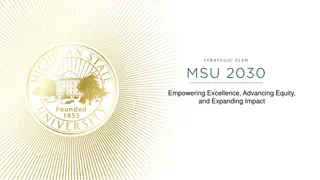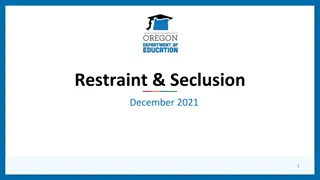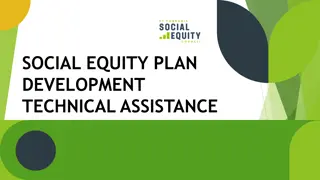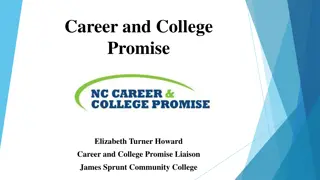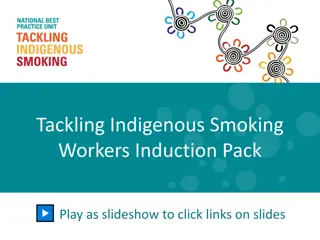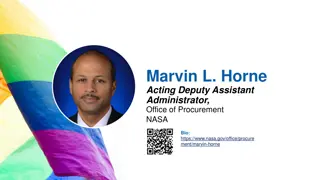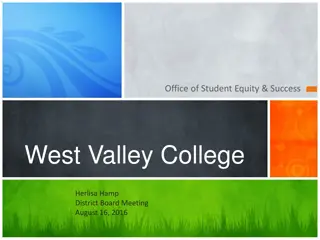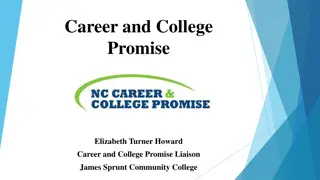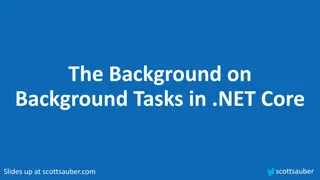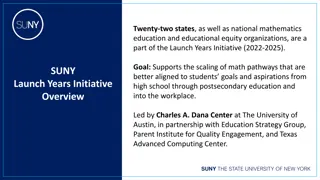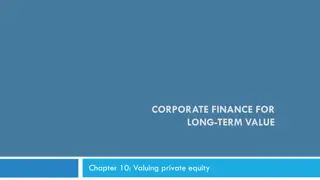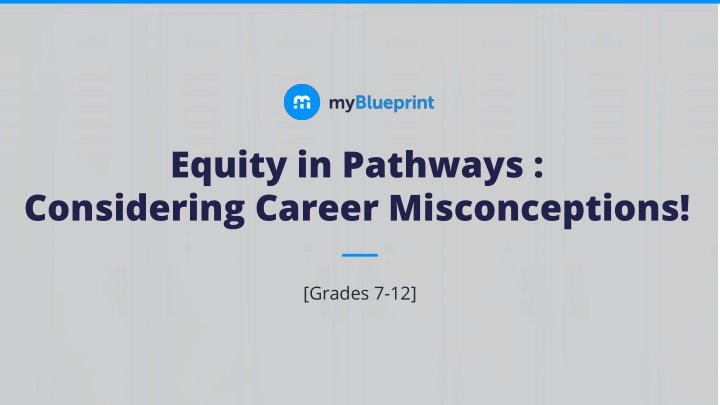
Challenging Career Misconceptions: A Path to Equity in Education
Explore and debunk common career myths with students in grades 7-12. Encourage critical thinking and open-mindedness towards various career paths. Engage in activities to dispel stereotypes and expand perspectives on education and job markets in Canada.
Download Presentation

Please find below an Image/Link to download the presentation.
The content on the website is provided AS IS for your information and personal use only. It may not be sold, licensed, or shared on other websites without obtaining consent from the author. If you encounter any issues during the download, it is possible that the publisher has removed the file from their server.
You are allowed to download the files provided on this website for personal or commercial use, subject to the condition that they are used lawfully. All files are the property of their respective owners.
The content on the website is provided AS IS for your information and personal use only. It may not be sold, licensed, or shared on other websites without obtaining consent from the author.
E N D
Presentation Transcript
Equity in Pathways : Considering Career Misconceptions! [Grades 7-12]
Learning Objectives 1 By the end of the lesson, students will be able to differentiate between common misconceptions and realities related to various career paths. 2 By the end of the lesson, students will be able to dispel stereotypes about careers in different industries such as IT or Gas. By the end of the lesson, students will be able to look at career paths from a more open minded perspective that doesn t focus solely on a single aspect like money or education requirements. 3
Minds On: 1. First, take a moment to identify and discuss common workplace stereotypes you're aware of. 2. Individually, spend 2 minutes identifying one workplace myth (e.g., "construction workers aren't educated" or "all lawyers are wealthy"). 3. Afterward, break into small groups of 3 or 4 and share the myths you've identified. 4. Within each group, choose the most prevalent myth to share with the class. 5. As a class, engage in a discussion about why workplace myths exist and why it's important not to unquestionably believe them
Activity You are given three options. You can Agree, Disagree, or be Neutral. You will represent these actions by putting a Thumbs up, Thumbs down, or Thumbs sideways.
Lets take a look at career misconceptions!
Only people with lots of money can afford to go to university. Do you agree or disagree with this statement?
Expanding Perspectives: It is true that post-secondary education is costly. However, many Canadian universities offer scholarships, grants, and financial aid options for students. The Canada Student Loans Program (CSLP) also assists eligible students with the cost of post- secondary education through loans and grants.
The Canadian job market is only strong in major cities like Toronto and Vancouver. Do you agree or disagree with this statement?
Expanding Perspectives: While major cities like Toronto and Vancouver do offer significant job opportunities, Canada's strong job market extends to many other regions. Provinces like Alberta, Saskatchewan, and Manitoba have thriving industries in sectors like agriculture, energy, and healthcare, offering diverse career options.
You cant change your career. Do you agree or disagree with this statement?
Expanding Perspectives: The average Canadian will change careers multiple times in their life. Changing your career certainly presents challenges, however, continuous learning, upskilling, and reskilling programs in Canada can help facilitate career transitions.
Theres no point in doing a temporary job as you ll be out of work again in a few months Do you agree or disagree with this statement?
Expanding Perspectives: Temporary jobs often provide opportunities to gain experience, network, and even transition to permanent roles. Many Canadian employers use temp positions to evaluate potential long-term employees.
People who work in finance just have to use math all day Do you agree or disagree with this statement?
Expanding Perspectives: Mathematics is an important component of working in Finance. However, finance roles in Canada involve a range of skills, including relationship management, strategic planning, and regulatory compliance, not just mathematical calculations.
Apprenticeships are only for people who don t get into university. Do you agree or disagree with this statement?
Expanding Perspectives: Apprenticeships in Canada offer hands-on experience and often lead to high-paying jobs in various fields. Many people choose apprenticeships to gain practical skills, even if they have the academic qualifications for university.
Certain jobs are only suitable for one gender, and it's unusual for boys and girls to pursue careers outside of these norms. Do you agree or disagree with this statement?
Expanding Perspectives: Career choices should be based on individual interests and abilities, not gender stereotypes. Boys and girls can pursue any profession they are passionate about, breaking down traditional gender roles.
Apprenticeships are just for people who want to learn a trade, like plumbing. Do you agree or disagree with this statement?
Expanding Perspectives: While trades are a significant part of apprenticeships, they also exist in fields like IT, healthcare, and finance in Canada.
Starting a business in Canada is overly complex and not worth the effort. Do you agree or disagree with this statement?
Expanding Perspectives: Canada offers a supportive environment for entrepreneurs. While starting a business requires effort and planning, there are numerous resources, government programs, and support networks available to help you navigate the process and succeed as a business owner.
Employers just want people who have degrees. Do you agree or disagree with this statement?
Expanding Perspectives: While some jobs require degrees, many employers in Canada value skills, experience, and fit over formal education. Vocational training, certifications, and work experience can also lead to fulfilling careers.
Money is the most important thing when you re looking for a job. Do you agree or disagree with this statement?
Expanding Perspectives: A survey by Randstad Canada found that while salary is essential, other factors like work-life balance, job security, and a pleasant work atmosphere are equally (or even more) important to Canadian workers.
You can't have a successful career in arts or creative fields in Canada. Do you agree or disagree with this statement?
Expanding Perspectives: Canada has a thriving arts and creative industry. Many artists, musicians, writers, and designers have successful careers in Canada. While it can be competitive, talent and dedication can lead to fulfilling careers in the creative sector.
Consolidation: Having explored career misconceptions, it's time to reflect on your own future aspirations. Consider if you have any preconceived notions or beliefs about careers. Do these notions serve as barriers to your goals? Do they limit your aspirations? Dedicate 10 minutes to either setting a specific career goal or crafting a motivational message to yourself. This exercise is designed to help you break free from any perceived obstacles and remind you that you are in control of your own future.

